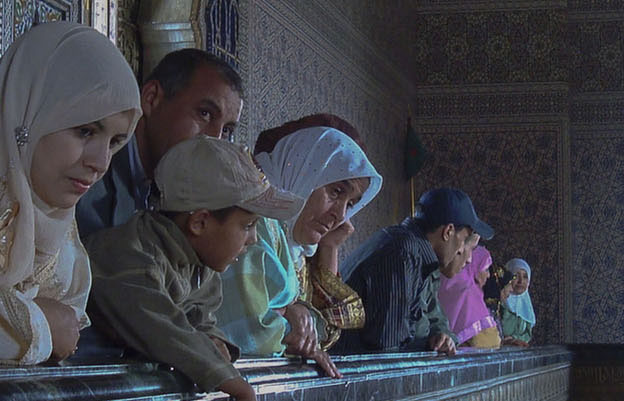Visual Ethnography at NIMAR
The last weekend of March, eighteen honours students from the Faculty of Social Sciences at Leiden University came to the NIMAR for the programme “A Visual Ethnographic Approach; Urban Culture, Heritage and Migration in Morocco”. They came to Morocco to learn about visual ethnography, dive into the culture of Rabat and practice their newly taught skills in taking ethnographic photographs. The programme combined an interest in local traditions of image making with the practice of visual methods to do research. Read bellow what the students have learned and experienced during their study trip to Rabat.

Morocco through a lens
Going on a study trip is always an exciting experience, you get the opportunity to travel to a country and you also get to learn. Learn a lot.
Upon our arrival in Morocco, we were already mesmerised by the beauty of the country, and it wasn’t until we got to the NIMAR that we experienced the first taste of Moroccan hospitality with wonderful snacks and Harira soup, a classic. This was only the first taste of Moroccan food that we would get for the rest of the days. But, aside from food, we were also introduced to incredibly helpful and knowledgeable academics that guided us during the weekend in our lessons about Morocco. We not only experienced the city of Rabat by itself, as simple tourists, we explore it with fresh, impressionable minds. We were given the task of taking pictures around a theme, something that seems easy at first, but that requires an open eye, and an open spirit. When you visit a new city, you are like a sponge, trying to soak everything up. The power of photography lays in that moment: the moment your mind tries to process all the new environments, and your heart is experiencing new, unknown sensations. Forever captured in a picture. But photography, and the visuals it produces, are not only used to immortalise moments and memories, it allows for so much more than that. During the span of three short days we were introduced to visual ethnography, that is, the utility of visuals, whether they were still pictures or moving images, and the extent to which they can be powerful tools in the understanding of the person, the society, or the culture in front of you. How they can be a white canvas at first, but slowly become a source of knowledge, inspiration and imagination. - Sandra

“Moroccan hospitality” anecdote:
‘The sister of my host family came home and told us that she had been at a baby shower. She showed us some pictures of her and her friends in the most beautiful dresses. We were impressed and told her that she looked gorgeous! And before we knew, she pulled out some dresses and we put them on. It was so amazing! This really shows their hospitality, because she didn’t have to do it. Then, the father saw us wearing those dresses and smiling like we had never done before. He asked us: “Are you happy?”. We nodded, still completely impressed and feeling very fortunate. He smiled as well and said: “Good, because that’s the most important thing for me”’ - Jetske
“Moroccan surprises” anecdote:
One of the funniest memories I have from this amazing trip, was at our host family. We (Michiel, Dario & Vincent) were kindly welcomed as always, and within 30 minutes we got ourselves the second couscous of the day. Because, in Morocco, Friday is couscous day! Once again, it was DELICIOUS. We were halfway through our meal, when Dario wanted to make a comment about the meat that was in the couscous. He just started admiring it: “Wow this chicken is so good! It’;s way better than the chicken from the Albert Heijn in the Netherlands. Sometimes the chicken you buy there doesn’t even taste like real chicken!”. And he went on for 10 more seconds stating how good this chicken really was. Then there was a silence for like 10 seconds... until our host finally replied: “It’s sheep meat”. We were all amused, and could not hold our laugh. It was so good. After that we enjoyed our couscous again, and the second day was almost at an end” – Vincent



